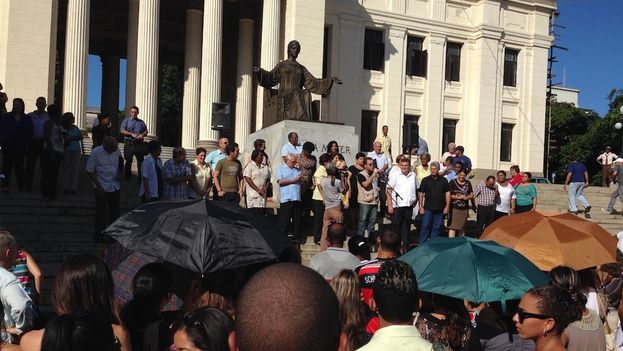
14ymedio, Orlando Palma, Havana/November 8, 2014 — Although missing from the opportunities portfolio, “the exportation of academic services” may be a considerable field for obtaining foreign currency given the presence of more than two thousand Cuban helpers in some 14 countries, according to what Doctor Aida Terrero Lafita, director of International Relations for the Ministry of Education, set forth in a press conference.
Although the amount that this would represent for the country was not made public, the official emphasized that among those programs most in demand abroad are a literacy teaching program known as Yes, I Can, and another called Teach Your Child, intended for early childhood, and those that focus on special education.
Dr. Terrero specified that on the African continent there is a growing trend of seeking Cuban collaboration in technical and professional education, especially as related to jobs in the fields of electricity, construction and agronomy.
The branch of the Ministry of Education charged with exporting academic services includes a team of 26 specialists occupied with carrying out the process for selecting the teachers who will offer services abroad.
There are many educators who aspire to carry out one of these missions, now lacking the epic and caring character of other times and marked today by the economic needs of the country and the hardships that these professionals experience. In spite of receiving a fraction of what the State raises in payment for their services, many of them consider the missions in other countries an opportunity to improve economically and acquire consumer goods.
Public Health personnel have been doing something similar and, according to unofficial figures, close to 50,000 people from that sector currently lend service abroad. They are mainly in Venezuela, Brazil, Nicaragua, and Bolivia, also in Argentina, Ecuador, Haiti, Guatemala, Panama and many other countries.
Translated by MLK
